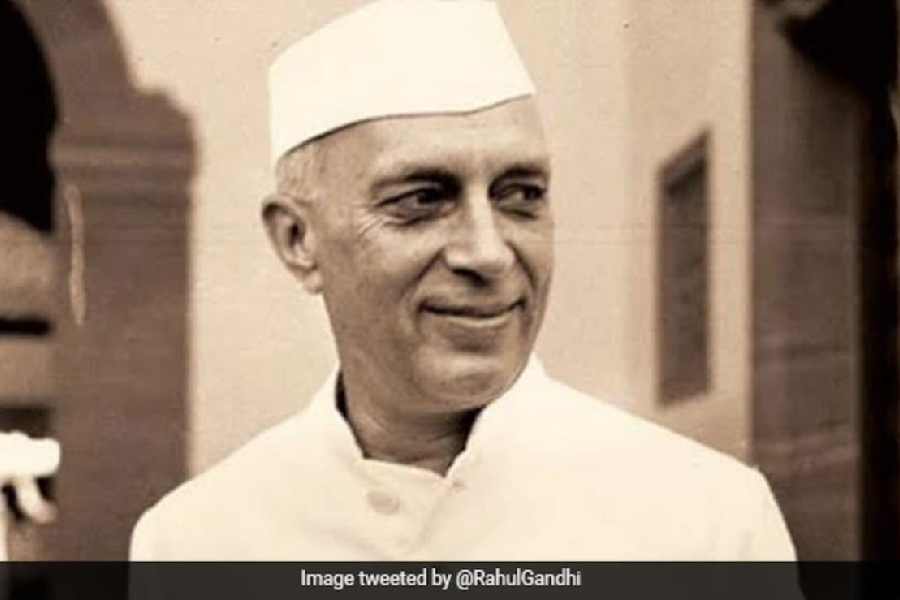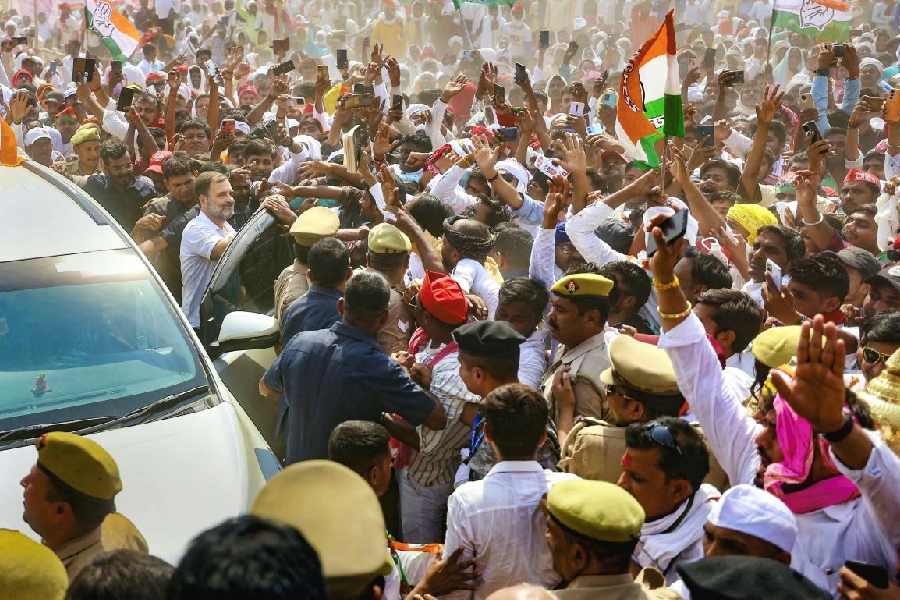Jawaharlal Nehru, India’s first Prime Minister, won the first three Lok Sabha elections here. But Parliament’s cradle of Nehruvianism is now a theatre of caste politics.
For the past four decades, whoever has garnered the votes of the OBC Patels has won from Phulpur Lok Sabha seat in Allahabad district.
This time, too, the three main contenders — coincidentally, they all cut their political teeth in the Bahujan Samaj Party — are all wooing the Patels.
The community, which accounts for 3 lakh of the constituency’s 15 lakh voters, knows that any split in its vote will rob it of its political clout. Its powerful organisations therefore try to ensure that the Patels vote en masse for a particular candidate each time.
While BJP candidate Praveen Patel is himself from the community, Amarnath Maurya of the Samajwadi Party and BSP candidate Jagannath Pal — both OBCs — have powerful local Patel leaders from their parties campaigning for them.
“All three candidates are openly invoking caste because recent history suggests this is the only way to win from here,” said Janardan Patel, a young graduate from Phaphamau Assembly segment in the constituency who is searching for a job.
“No political party except the Congress under Indira Gandhi thought about this place. She set up an Indian Farmers Fertiliser Cooperative factory here. She did so because her father had represented the seat thrice,” Janardan added.
“After her, nobody did anything for Phulpur. People here eventually realised that vote or no vote, no leader was going to do anything for them and so they got divided along caste lines.”
Nehru was MP from Phulpur from 1951 till his death in 1964. His sister Vijay Laxmi Pandit was elected from here in 1964 and 1967. Vishwanath Pratap Singh — who later became Prime Minister — won in 1971 as the Congress nominee.

Jawaharlal Nehru.
But from 1984 to 2004, Patel candidates alone won. Ram Pujan Patel (1984 to 1996), was first in the Congress and later in the Janata Dal. Jang Bahadur Patel (1996 to 1999) and Dharmraj Patel (1999 to 2004) were Samajwadis.
Atiq Ahmad, a dreaded gangster, won in 2004 on a Samajwadi ticket. Kapilmuni Karwariya, another alleged criminal, won in 2009 as BSP candidate. Both had Patel support.
Atiq was assassinated in police custody in Allahabad on April 15 last year. Many pointed to his religion and criminal record to suggest his murder on the watch of Yogi Adityanath would earn the BJP Hindu votes. But Janardan said religion was a non-issue here.
Keshav Prasad Maurya of the BJP won Phulpur in 2014 before resigning to join the state government and contest Assembly elections. Samajwadi candidate Nagendra Pratap Patel won the 2018 by-election before Kesari Devi Patel of the BJP wrested the seat in 2019.
Fearing anti-incumbency, the BJP has replaced Kesari with Praveen, a two-time MLA from Phulpur Assembly segment. Praveen had become Jhusi MLA on a BSP ticket in 2007 but joined the BJP a few years later.
Amarnath, the Samajwadi nominee, too was initially in the BSP.
The losers’ list in Phulpur too contains big names. Socialist leader Ram Manohar Lohia lost to Nehru in 1962 while BSP founder Kanshi Ram lost to his disciple turned apostate Jang Bahadur Patel, the Samajwadi nominee, in 1996.
Sonelal Patel, founder of the Apna Dal, lost five elections from Phulpur between 1996 and 2009. Cricketer Mohammad Kaif contested on a Congress ticket in 2014 and lost to Keshav Prasad Maurya of the BJP.
Rakesh Singh, a teacher in Phulpur, said: “The power loom industry thrived here in the past but most of the units have closed over the past few years because of the rising cost of raw materials. While the country is going forward, Phulpur is going backwards. But that is not a political issue. Here caste rules the minds of the voters.”
Phulpur votes on May 25










